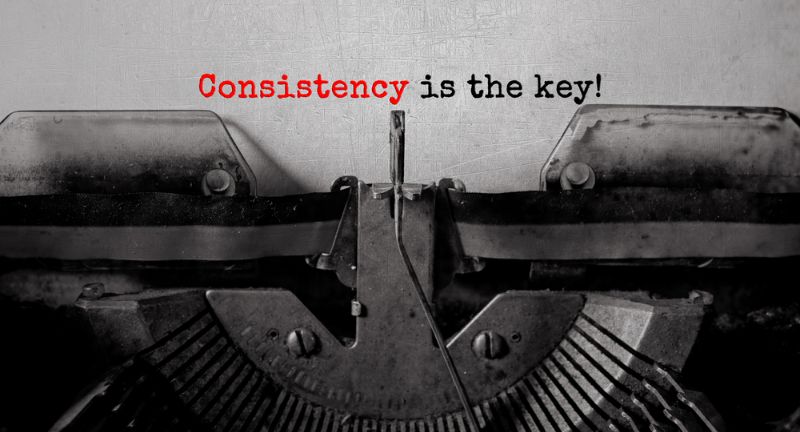Mental Health
18 Behaviors That Expose Someone’s True Character
Published
12 months agoon

Shutterstock
Understanding the character of a person involves observing their behavior across different situations and interactions. Character is not just about the more visible traits like charisma or intelligence, but also about the subtler, consistent ways a person behaves and treats others when they think no one is watching.
By paying attention to specific behaviors, ranging from how individuals treat service staff to their response to failure, we can gain deeper insights into their true nature and values.
How They Treat Service Staff

Shutterstock
When someone interacts with service staff, such as waiters or cashiers, their level of respect and kindness can be very telling. Individuals who treat these workers with dignity and patience often possess empathy and a grounded sense of equality. Conversely, those who demean or overlook them might struggle with empathy or have a sense of entitlement. Observing these interactions can provide a window into how a person values others, regardless of their social or economic status.
Response to Criticism

Shutterstock
A person’s reaction to criticism can reveal their openness to growth and their level of self-security. Someone who accepts constructive criticism with grace likely has a strong sense of self and a commitment to personal development. In contrast, defensive reactions or denial may suggest an inability to accept faults or a fear of vulnerability. This behavior underscores their resilience and capacity for self-reflection.
Consistency in Words and Actions

Shutterstock
The alignment between what a person says and what they do is a critical measure of integrity. Individuals whose actions match their words are generally trustworthy and dependable. On the other hand, a discrepancy between promises and follow-through can indicate unreliability or dishonesty. Observing this consistency is key in evaluating someone’s honesty and integrity.
Respect for Boundaries

Shutterstock
How a person respects others’ boundaries shows their understanding and value of consent and personal space. Someone who carefully listens and adjusts their behavior to respect others’ limits demonstrates empathy and social awareness. Disregarding or intentionally pushing boundaries, however, can indicate a lack of respect and potentially manipulative tendencies. This behavior is crucial for healthy and respectful relationships.
Compassion Towards Animals

Shutterstock
The way a person treats animals can be a reflection of their capacity for empathy and kindness. Those who show care and kindness to animals often exhibit a nurturing and compassionate nature. Neglect or cruelty towards animals, conversely, is a significant red flag indicating a lack of empathy and possible aggressive tendencies. This aspect of behavior can reveal the depth of a person’s kindness and empathy.
Patience in Stressful Situations

Shutterstock
Observing someone’s patience during stress or adversity can indicate their emotional resilience and coping mechanisms. Individuals who maintain composure and can navigate stress with calmness typically have strong emotional intelligence and problem-solving skills. Impatience or frustration, in contrast, may suggest difficulty in handling stress or a tendency towards reactive behavior. Patience is a virtue that signifies emotional stability.
Generosity and Sharing

Shutterstock
Generosity is not solely about material gifts but also the willingness to share time, knowledge, and resources. A generous person often values relationships over possessions and is inclined towards altruism. Stinginess or reluctance to share, on the other hand, might indicate a more self-centered perspective or insecurity about resources. Generosity reveals a person’s attitude towards wealth and community.
Reliability and Dependability

Shutterstock
A reliable individual makes commitments they can keep and is someone others can count on. This behavior shows responsibility, respect for others’ time and trust, and an organized approach to life. Unreliability, such as frequent cancellations or unfulfilled promises, may reflect disorganization, lack of respect, or self-centeredness. Dependability is a cornerstone of trust in any relationship.
Handling of Conflict

Shutterstock
How a person deals with conflict can reveal their maturity, communication skills, and empathy. Someone who approaches disagreements with a calm, open-minded attitude likely values harmony and understanding. In contrast, resorting to aggression or avoidance can indicate poor communication skills or fear of confrontation. Effective conflict resolution is indicative of emotional intelligence and maturity.
Resilience in the Face of Failure

Shutterstock
Observing how someone responds to failure can reveal their grit and capacity for growth. Individuals who view failures as learning opportunities demonstrate resilience, a growth mindset, and determination. Those who give up easily or blame others may lack perseverance or struggle with self-esteem. Resilience is a key trait that determines how a person navigates challenges and setbacks.
Humility and Ability to Apologize

Shutterstock
A person who can admit mistakes and apologize sincerely shows humility and a recognition of their fallibility. This behavior suggests a grounded sense of self and a respect for others’ feelings. An inability or unwillingness to apologize may indicate arrogance or a lack of empathy. Humility enriches relationships and fosters mutual respect.
Attitude Towards Money

Shutterstock
A person’s attitude towards money, including spending, saving, and sharing, can reflect their values and life priorities. Those who manage money wisely and with consideration for others’ well-being show responsibility and empathy. Conversely, reckless spending or stinginess can indicate a range of character traits, from impulsivity to insecurity. Money attitudes can reveal much about a person’s priorities and values.
Social Interaction Styles

Shutterstock
The way a person interacts socially—whether they are inclusive, respectful, and attentive or dominating and indifferent—can highlight their social awareness and empathy. Inclusive individuals who listen actively and respect differing opinions demonstrate emotional intelligence and respect for diversity. Dominant or dismissive behavior, however, may suggest a lack of empathy or a need for control. Social behaviors are telling of a person’s relational dynamics and respect for others.
Attention to Detail

Shutterstock
Attention to detail can indicate a person’s level of care and dedication to tasks, whether in professional settings or personal projects. Those who take the time to ensure accuracy and quality often value excellence and take pride in their work. A lack of attention to detail, on the other hand, may suggest a disinterest or a more relaxed approach to responsibilities. This trait speaks to a person’s work ethic and pride in their endeavors.
Punctuality

Shutterstock
Being on time shows respect for others’ time and commitments, indicating a person’s reliability and organizational skills. Consistent punctuality reflects a respect for others and an understanding of the importance of time. Chronic lateness, however, can signal disorganization, a lack of respect, or prioritization issues. Punctuality is a simple yet profound way to demonstrate respect and professionalism.
Curiosity and Love of Learning

Shutterstock
A person who shows a genuine curiosity about the world and a love for learning tends to be open-minded and intellectually engaged. This behavior suggests an appreciation for growth, innovation, and the exploration of new ideas. A lack of curiosity, conversely, might indicate a closed mindset or a disinterest in personal development. Curiosity drives personal growth and a deeper understanding of the world.
Empathy in Listening

Shutterstock
Someone who listens with empathy, giving their full attention and seeking to understand others’ perspectives, demonstrates deep relational skills. Empathetic listeners validate others’ feelings and foster deeper connections. Conversely, interrupting or failing to listen can signal a lack of interest or empathy. Empathy in listening is crucial for meaningful relationships and communication.
Integrity in Private Moments

Shutterstock
Integrity is not just about how we act in public but also about our actions when no one is watching. Individuals who maintain their principles and make ethical choices even in private have a strong moral compass. Actions that contradict public personas when in private may suggest hypocrisy or a lack of true integrity. True character is consistent, whether observed or alone.
Conclusion

Shutterstock
The character of a person is a tapestry woven from their actions, reactions, and interactions in daily life. By examining behaviors such as respect for others, integrity, and empathy, we can uncover the foundational qualities that define someone’s true self. Ultimately, understanding these behaviors not only helps us assess the character of those around us but also encourages us to reflect on and cultivate our own character traits.








